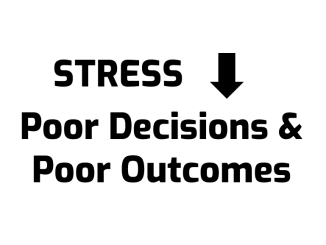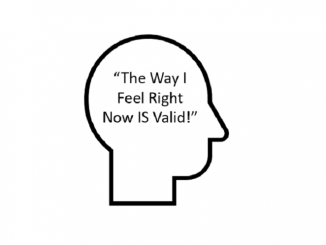Some people would say that it isn’t hard to find oneself, you need only look down or find a mirror, however, that is all purely superficial.
The term “finding oneself” means an individual has cut through their concepts of self, often stemming from (mostly inaccurate) extrinsic sources, and works out what makes themselves tick.
This is the development of self-awareness. This is often what therapists try to help clients achieve, I know I certainly do.
Self-awareness is working out what your vulnerabilities are, your automatic emotional responses, sensitivity, history, role models, what your needs are, what your realities are, even cultural and biological factors, etc.
It is about being able to be equally more in tune with your unique inner experience, then in turn being better able to explain that experience to others.
If we look at this phenomenon through the lens of interpersonal relationships, it is my experience that a lack of self-awareness can be a major hurdle to developing healthy and intimate relationships with others.
What is intimacy? Intimacy, essentially, is closeness.
A lack of intimacy between romantic partners is often described to me in my relationship counselling work as “we’re like ships in the night”, co-existing, surface level, or familiar companionship. These are the couples that are often functional, but not connected.
I think it is often the fundamental definition of “we have communication issues”…the common complaint of people coming into couples counselling.
Intimacy is when we connect deeply with another, but how can we do that if we have a lack of self-awareness? How can we truly reflect our feelings and experiences to another if we lack a connection to and awareness of them?
What chance has the other person got of being able to validate our experience if we can’t share it with them?
I think it is something that many people crave, but often don’t achieve for myriad reasons, these could include situations where a person is simply not aware that they lack awareness. They don’t know that you need to work on yourself to achieve greater self-awareness (chicken or egg scenario).
Then there are situations such as having a partner not able or interested in going on the journey or being in a situation where past hurts or grievances just keep getting in the way of developing awareness and intimacy.
What is an intimate conversation?
An intimate conversation is a heartfelt and personal exchange between two people. It goes beyond surface-level chit-chat and delves into emotions, thoughts, and experiences that create a deep connection.
In such conversations, individuals feel safe to be vulnerable, sharing their innermost feelings and secrets without fear of judgment.
Intimate conversations strengthen bonds, promote empathy, and foster a sense of closeness. These moments of genuine sharing and understanding allow people to truly know and support each other, creating meaningful and lasting relationships. – Marriage.com
I think this intimacy phenomenon is encapsulated in a letter a woman wrote to the editor of the publication, Psychology Today. “When I find a man who asks, ‘How was your day?’ and really wants to know, I’m in heaven.”
In other words, this woman wants to share her experience, not necessarily of the who, what, when, where, and why of the day, but her emotional experience of the day.
In her perfect world, she would love to have that experience validated, without receiving problem-solving advice (unless she asks you for your take on the situation), and have the opportunity to see into your world equally too.
After all, isn’t this exactly why we ask the question “How was your day?”? In my opinion, this is the ultimate invitation to intimacy.
But, again, both people need to be in touch with their inner experience to properly reflect this experience to their intimate partner. Responding with “good” or “frustrating” e.g. has the same level of depth as those superficial responses outlined at the start of this article.
But, Joel, we just don’t have the time to talk.
I get it, life is busy and not all couples can sit and talk each time they come back together, but this is a situation where you need to make time. If you don’t make time, or make the effort, you may be missing a real opportunity to have a relationship that is so much more than a surface-level exercise.
But we need to build that self-awareness first, then we give ourselves a chance at true intimacy.
There’s also great irony in the fact that having an intimate partner is a significant help in reaching greater self-awareness as the extrinsic feedback you receive is now more accurate (a perfect positive feedback loop).
Here’s a good question to ask yourself to determine just how well you know what your partner is experiencing – what is your partner’s number one worry right now? If you aren’t sure, perhaps this is both a sign, and an area of opportunity?
If these things I’ve outlined feel like something that you and your partner could use some assistance with, I would be more than happy to try and help.



